Confession: I've become a huge fan of intermittent fasting (IF). It's the simplest approach to weight management I've ever experienced. This from a longtime lifetime WW raised to believe that skipping meals was harmful to my health. I was afraid of missing a meal or snack and once missed a cross-country flight waiting in line for a sandwich to carry on board!
Years ago, when my brother began experimenting with intermittent fasting, I was intrigued but skeptical. It seemed too severe, too harsh, too tough, and honestly, kinda scary. But then I observed him, read extensively, and over time began experimenting with various approaches myself.
I'm now a complete convert. A committed advocate of intermittent fasting or time-restricted eating or whatever you want to call it.
The Popularity of Intermittent Fasting is on the Rise
I'm not alone. A few days ago I met friends I hadn't seen in a couple of years for dinner. Bernie had lost forty plus pounds and was off is diabetes medicine. His wife, Christine, had dropped 30 pounds. They attribute their weight loss to the habits they have adopted since first learning about IF from Dr. Jason Fung.
Intermittent fasting is becoming more mainstream by the minute:
- Top weight loss search term in 2019 according to Google
- Prominently featured in a review article in The New England Journal of Medicine.
- The Intermittent Fasting Community on Reddit has 815k members. By comparison, the Reddit WW Community has 77k participants.
Everywhere I turn I'm seeing folks sharing their intermittent fasting success stories.
I believe the secret to intermittent fasting's success rests in its simplicity. It's so much easier than I thought it would be. I eat fewer meals and snacks saving time and money. I no longer have to eat from a specific food list or track my intake. Talk about freeing.
I think the biggest hurdle is psychological because it's really not that hard to do once you try it.
Dr. Michael Eades succinctly sums it up perfectly...
Diets are easy in the contemplation, difficult in the execution. Intermittent fasting is just the opposite—it's difficult in the contemplation but easy in the execution. ~ Dr. Michael Eades
Fasting, of course, has existed forever. We are the products of feast or famine conditions that existed for millennia. It's been practiced by many faiths for centuries. However, in our modern all-you-can-eat world, intentionally going without food for several hours is a strange, alien concept. We eat all the time. Most of us eat at least three meals a day with substantial snacks in between.
Remember when mom would admonish you for snacking before supper? Those days are long gone. Most of us snack right up until meal time. We eat because food is there, not because we are hungry.
What is Intermittent Fasting?
Intermittent fasting is an eating plan that switches between not eating and eating on a regular schedule. Intermittent fasting is not a diet, it's a pattern of eating. It's a way of scheduling your meals so that you get the most out of them. Intermittent fasting doesn't change whatyou eat, it changes when you eat.
With intermittent fasting, you only eat during a specific time. Fasting for a certain number of hours each day or eating just one meal a couple days a week, can help your body burn fat and lose weight. And scientific evidence points to some health benefits too.
More Intermittent Fasting Articles & Resources:
- Intermittent Fasting: What is it and how does it work (Johns Hopkins Medicine)
- What is Intermittent Fasting Explained in Human Terms (Healthline)
- The Beginner's Guide to Intermittent Fasting (James Clear)
- Intermittent Fasting for Beginners (Diet Doctor)
- What is Intermittent Fasting? (VeryWellFit)
- Intermittent Fasting 101: The Ultimate Beginner's Guide (Healthline)
How do you Do Intermittent Fasting?
There are several different ways to do intermittent fasting, but they are all based on choosing regular time periods to eat and fast. For instance, you might try eating only during an eight-hour period each day and fast for the remainder. Or you might choose to eat only one meal a day two days a week.
Popular approaches to intermittent fasting include:
- The Daily 12 Hour Fast involves fasting every day for 12 hours.
- The 16/8 Method involves fasting every day for 14–16 hours and restricting your daily eating window to 8–10 hours
- 5:2 diet involves eating normally 5 days of the week while restricting your calorie intake to 500–600 for 2 days of the week.
- Eat Stop Eat (affiliate link) involves a 24-hour fast once or twice per week. The approach I started with.
- Alternate day fasting in which you fast every other day.
- The Warrior Diet involves eating small amounts of raw fruits and vegetables during the day and eating one huge meal at night.
- Spontaneous meal skipping involves simply skip meals from time to time, such as when you don’t feel hungry or are too busy to cook and eat. This has been my husband's approach for decades.
More I.F. Resources:
- 6 Popular Ways to Do Intermittent Fasting (Healthline)
- 7 Ways to Do Intermittent Fasting (Medical News Today)
- The 7 Types of Intermittent Fasting and What to Know About Them (Everyday Health)
Is Intermittent Fasting Healthy?
Of course you need to check with your doctor before proceeding with Intermittent fasting.
Losing weight and being physically active may help lower your risk of obesity-related diseases, such as diabetes, sleep apnea and some types of cancer. For these diseases, intermittent fasting seems to be about as beneficial as any other type of diet that reduces overall calories.
Some research suggests that intermittent fasting may be more beneficial than other diets for reducing inflammation and improving conditions associated with inflammation, such as:
- Alzheimer's disease
- Arthritis
- Asthma
- Multiple sclerosis
- Stroke
More Resources & Articles on the Health Benefits of Intermittent Fasting:
- Intermittent Fasting: What are the Health Benefits? (Mayo Clinic)
- 12 Possible Health Benefits of Intermittent Fasting (Everyday Health)
- 7 Science Backed Benefits of Intermittent Fasting (Eat This)

Photo Credit: Alexandre Debiève on Unsplash
What Foods & Drinks Can I Have While Fasting?
Foods you can eat while fasting include:
- Water. Plain or carbonated water contains no calories and will keep you hydrated during a fast.
- Coffee and tea. These should mostly be consumed without added sugar, milk, or cream.
Can You Chew Gum While Intermittent Fasting?
When asked about chewing gum during a fasting window, Dr. Fung told POPSUGAR, "Yes, sweeteners can certainly produce an insulin response, but generally for gum, the effect is so small that there is likely no problem from it. So yes, technically it does break the fast, but no, it usually doesn't matter."
Favorite Intermittent Fasting Books
Want to increase your knowledge of intermittent fasting? Here are some of the books that I've read and found helpful:
The Complete Guide to Intermittent Fasting (affiliate link) by Jason Fung, MD
Toronto-based nephrologist Dr. Jason Fung has used a variety of fasting protocols with more than 1,000 patients, with impressive results. Co-authored with Jimmy Moore, the two explain what fasting is, as well as the various methods—intermittent, alternate-day, and extended fasting. The book also includes healthy recipes for inspiration in the kitchen. This is a great read for folks just starting out on their IF journey. I love the testimonials, the before and afters, and the detailed explanations of different ways that you can incorporate fasting into your life.
Eat Stop Eat (affiliate link) by Brad Pilon
This approach to intermittent fasting involves eating normally five or six days a week and fasting for a 20-24 hour period for the remaining 1-2 days
The book explains the many potential benefits, like faster metabolism and lower blood sugar, that you could get from the Eat Stop Eat approach.
Instead of constantly monitoring and tracking want you eat, with Eat Stop Eat you simply apply a small amount of restraint once or twice a week while you enjoy a ton of food-freedom the rest of the time. And more importantly to me at this stage of my life—Eat Stop Eat reverses the #1 cause of accelerated aging!
This is the first style of intermittent fasting I experimented with.
The Fast Diet (affiliate link) by Dr. Michael Mosley and Mimi Spencer
This is an updated version of the original NYT bestseller, which includes new science on how fasting works and its many benefits, as well as more recipes.
Mosley, a medical student turned journalist, documents his personal journey with IF and how it helped him lose weight and improve his health profile.
This book focuses on the 5:2 plan, a type of fasting in which you eat normally five days a week and a limited number of calories the other two days. I love its flexibility not restricting any whole food groups.
A very easy to read book with:
- Forty 500- and 600-calorie meals for your fasting days that are quick and easy to make.
- 8 pages of photos that show you what a typical "fasting meal" looks like.
- The cutting-edge science behind the program.
- A calorie counter that makes dieting easy.
- Powerful testimonials.
2,4,6, EAT: Intermittent Fasting Simplified by Stephanie O'Dea who describes herself as "a mom on the internet who writes cookbooks."
As a longtime fan of Stephanie O'Dea, this book felt like having intermittent fasting explained by a trusted friend.
Easy to read, informative and encouraging, Stephanie summarizes what she has learned about IF and how she applied it.
Intermittent Fasting has given her the freedom to not constantly worry about food all day long. It allowed her to eat and drink what she wanted once she figured out the timing.
The book includes:
- Introduction
- Heath benefits of intermittent fasting - general & Steph personally
- IF as a form of self-care
- How to fast made simple
- Tips, Tricks & FAQs
- Glossary of common terms & acronyms
- Final thoughts
I found it interesting that instead of focusing on her fasting window, Steph had more success deciding upon her eating window hours and then sticking to them. With this approach you stop paying attention to the number of hours you've been in a fasting state. You just eat during the time period most convenient to your lifestyle on any given day.

She offers up intermittent fasting as an easy sustainable alternative to the myriad of more traditional yet complicated deprivation diets out there.
The book includes exploration of:
- major contributors to the modern obesity epidemic
- limitations of calorie counting
- insulin's powerful role in weight gain and weight loss
- explanation of intermittent fasting and different approaches
- Jen's preferred "eating window" and one meal a day (OMAD) approach to IF
- allowed foods and drinks during the fast
- personalizing a plan to work for you
- practical considerations & troubleshooting
- exercise, maintenance & support
- testimonials & success stories
- extensive annotated bibliography

A longtime lifetime WW at goal, she is committed to balancing her love of food and desire to stay slim while savoring life and helping others do the same.
She is the author of the Smart Start 28-Day Weight Loss Challenge.
A huge fan of the slow cooker and confessed cookbook addict, when she's not experimenting in the kitchen, you're likely to find Martha on her yoga mat.
This post contains affiliate links to products I like. When you buy something through one of my Amazon links or other (affiliate links), I receive a small commission that helps support this site. Thank you for your purchase!
Subscribe to Get: Top 10 Reader Favorite Recipes
The Top 10 Most Popular Recipes (PDF) on Simple Nourished Living + Weekly Support Emails with Tips & Easy Healthy Recipes Not Found Anywhere Else!
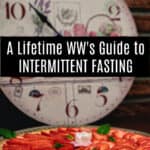
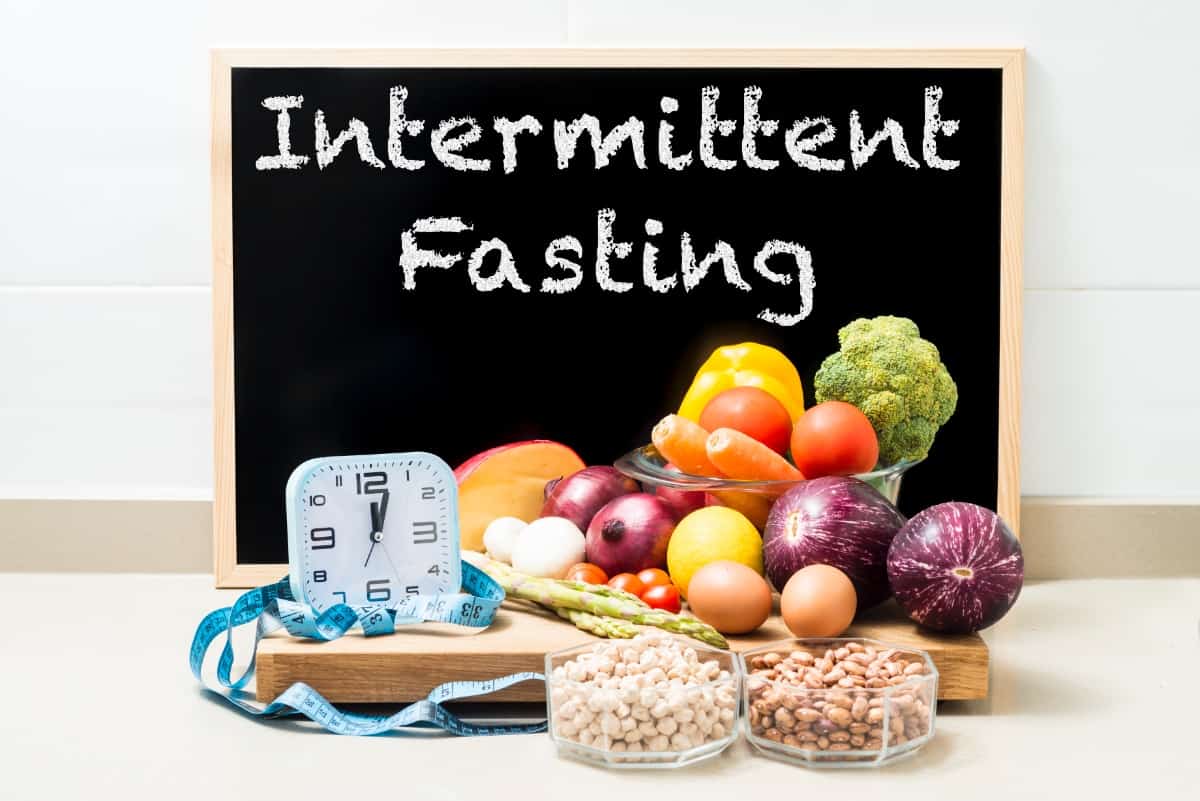
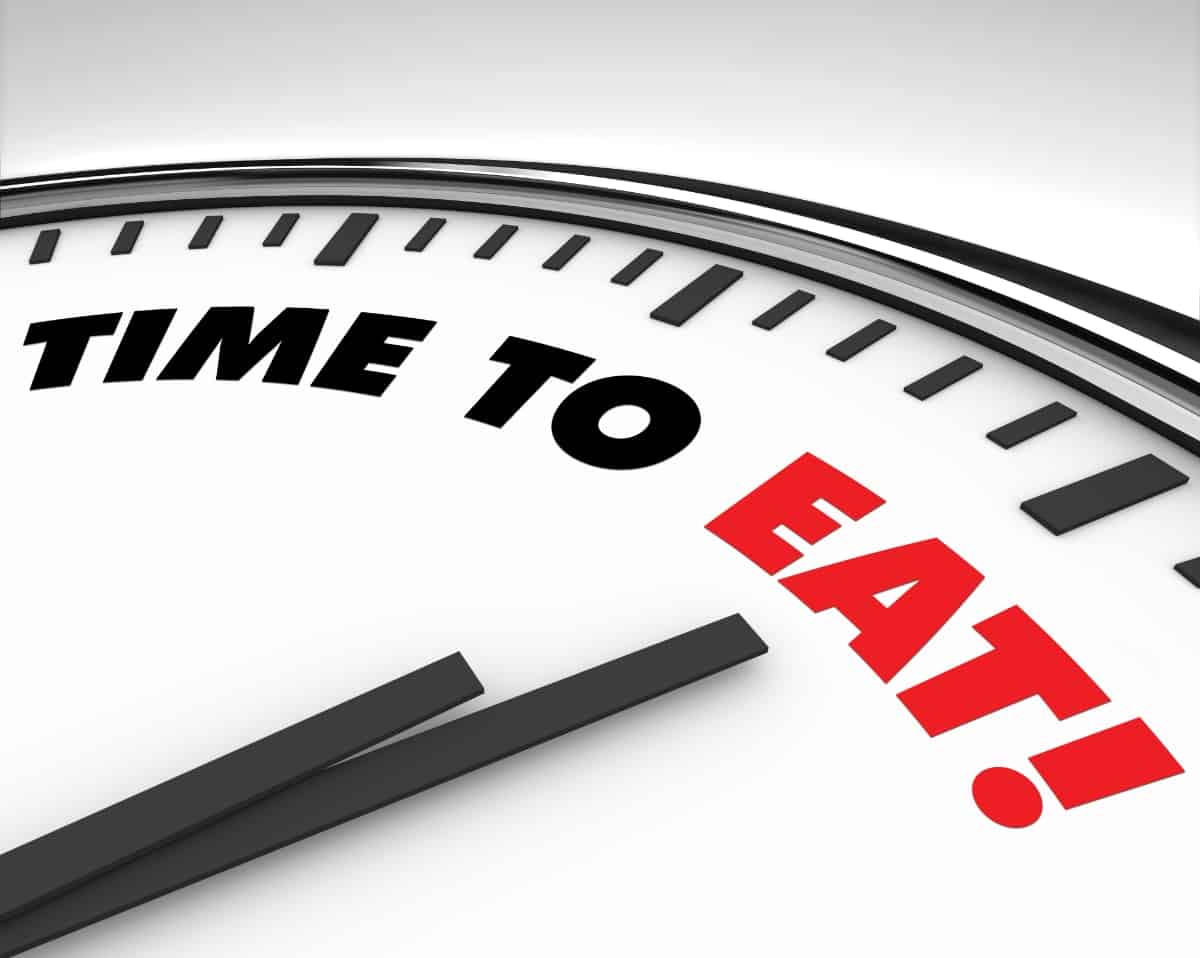
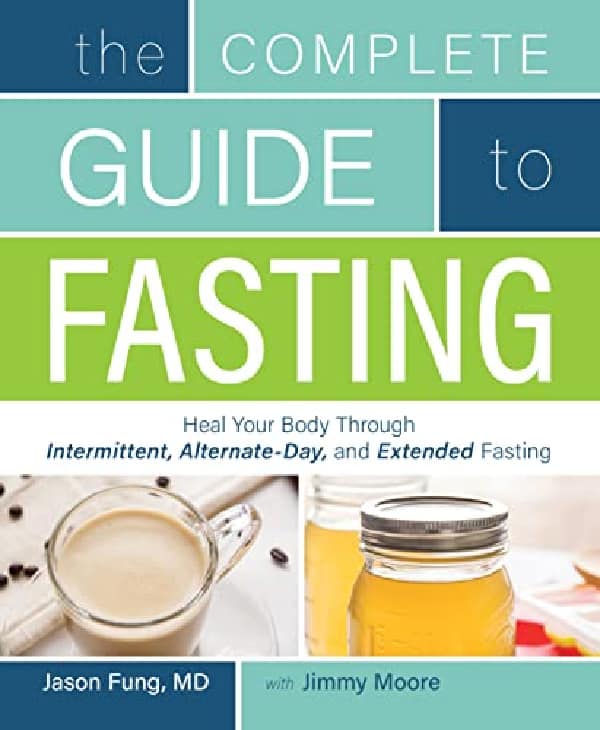
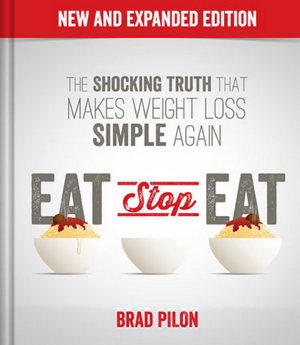
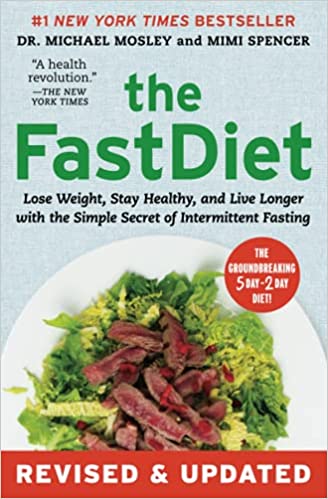
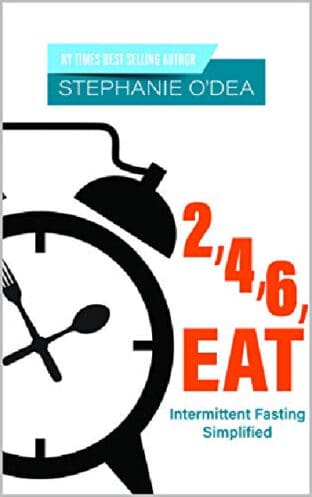
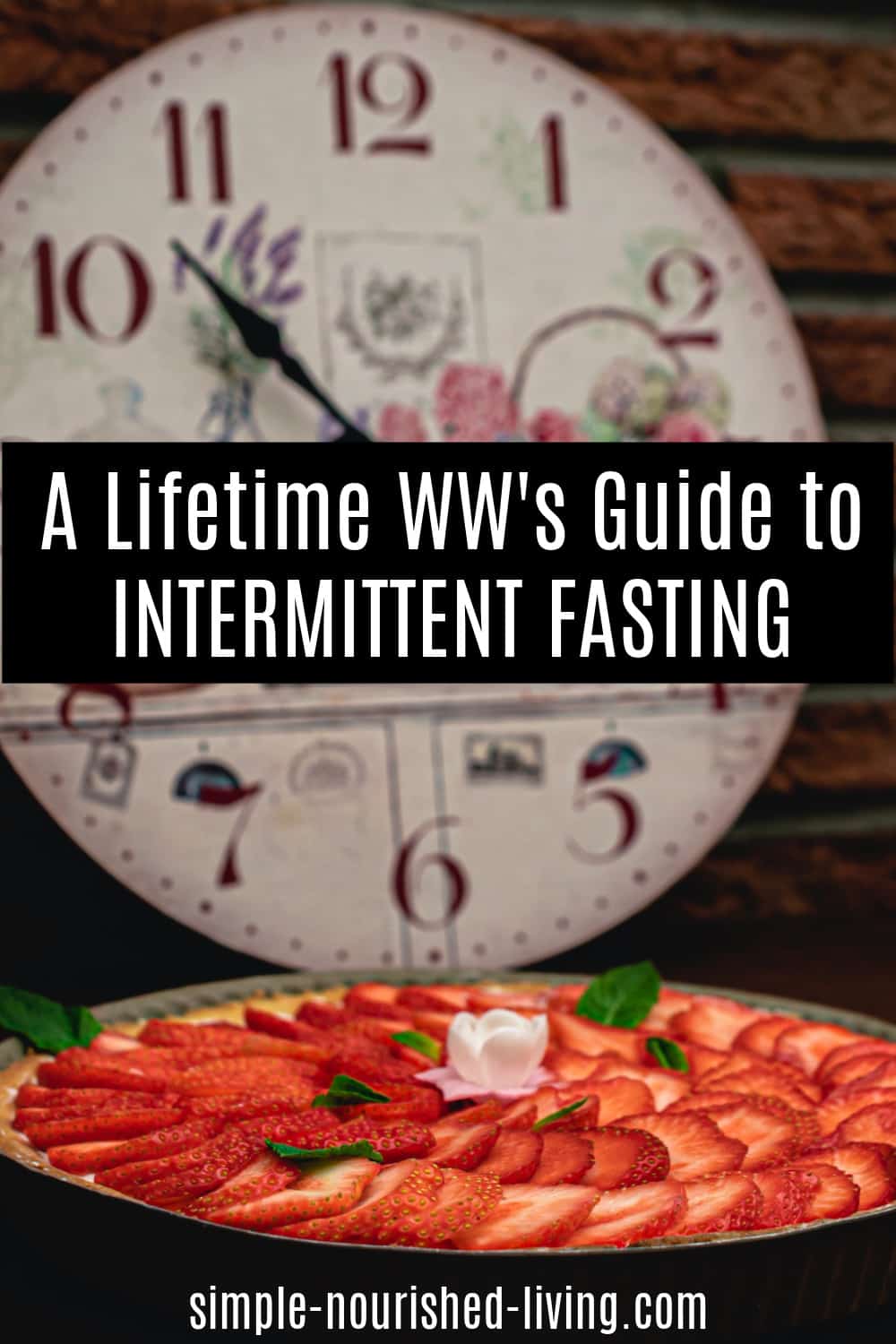


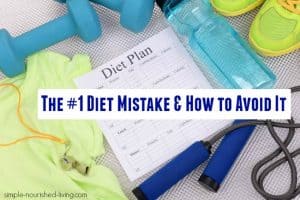
Stephanie O'Dea
Martha, thank you for the kind words and for the shout-out to my 2, 4, 6 EAT book.
I'm so happy that you found it useful and a friendly and doable approach!
🙂
lots of love to you and thank you again!! xoxo Steph
Cathy
I actually lost a lot of weight on IF but eventually gained it back. I think it was because I went to 1 meal a day and that's just not sustainable for me. I had started with the fasting for 16, eating for 8, and lost about 30 pounds and then it just stalled. 16/8 was easy to do and if it had kept working, I would never had gone to more drastic fasting.
I think the reason it stalled though is I was eating too much during those 8 hours.
Soooo, I started WW last summer and lost 50 pounds. I have now added back the 16/8 along with WW and it has kicked my weight loss in gear. I can see living with these 2 methods for the rest of my life. They are very doable. They both keep me accountable and I don't overeat.
Martha McKinnon
Hi Cathy,
Thanks for sharing your experiences. The healthy eating and portion control learned through WW can be a great complement to IF. I think you are right that the reason IF doesn't work for some people is that they eat too much during their eating window. Portions have gotten so huge in our modern world. ~Martha
Sue Purcell
Thank you for all the IF information in one place! Curious - what approach did you end up following?
Martha McKinnon
Hi Sue,
I started with the Eat Stop Eat Approach but now I follow the 16:8 method.
linda
I TRIED TO save this to pinterest so as to study it more carefully later, but it would not save
Kathy G
I started Intermittent Fasting about 6 weeks ago. I've read 2 of Dr. Fung's books. The one that you referenced and also "The Obesity Code." I find this way so easy to follow. My hours of eating fall between 11 a.m. and 5 p.m. I have lost 8+ pounds and I am amazed at how much more energy I have. I'm also eating healthier and have tried to eliminate as much sugar as is possible. Thank you for talking about this!
Terri H.
Hi Martha - I usually add a powdered collagen supplement to my morning coffee (Vital Proteins). Would that alone break a 16/8 fast? Thank you!
Martha McKinnon
Hi Teri, Here's a detailed article that explores that question in great detail - https://cbsupplements.com/cc/does-collagen-break-fast/ Hope it helps. ~Martha